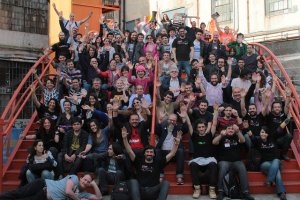
Hacks/Hackers chapters across the world bring together journalists, designers and developers in meetings, workshops and hackathons. It also attracts the free software community, many NGOs in the world of open data, the government sector, entrepreneurs and investors.
Running a chapter requires a lot of energy, time and effort. It takes organizers who are excited about the idea of reinventing the future of media through inspiration, education and collaboration between journalists, programmers and designers.
There are several strategies that worked well for us in establishing Hacks/Hackers Buenos Aires. We think these lessons can be helpful to other chapters.
Read the post here.
The International Journalists' Network, IJNet, keeps professional and citizen journalists up to date on the latest media innovations, online journalism resources, training opportunities and expert advice. ICFJ produces IJNet in seven languages: Arabic, Chinese, English, Persian, Portuguese, Russian and Spanish. IJNet is supported by donors including the John S. and James L. Knight Foundation.